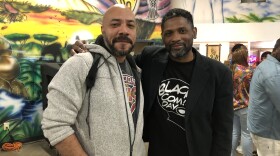Prosecutors have charged U.S. Marine Pfc. Joseph Scott Pemberton, 19, with murder in connection with the Oct. 11 drowning death of transgender Filipina Jennifer Laude, 26, in a motel bathroom.
As Home Post reported in late October, at issue within the Philippines' justice system was whether to charge Pemberton with murder, or the lesser charge of homicide.
According to The Associated Press, Olongapo City Prosecutor Emilie de los Santos told reporters on Monday:
"It's murder. It was aggravated by treachery, abuse of superior strength and cruelty."
Philippine media have reported that on the night of Oct. 11, Pemberton met Laude at a nightclub and the two later ended up at the Celzone Lodge in Olongapo City.

Police contend Pemberton strangled Laude, then drowned her in the motel's toilet bowl.
The A.P. reports Pemberton's friend, Lance Corporal Jairn Michael Rose, told investigators that Pemberton said he choked Laude after discovering she was transgender:
"I think I killed a he/she," Pemberton was quoted as having told Rose.
An autopsy conducted on Laude's body showed "asphyxiation by drowning" as the cause of death.
Pemberton was initially held in the brig of the San Diego-based USS Peleliu, but was later moved to a military camp in the Philippines (under U.S. custody).
According to the New York Times, Pemberton could serve up to 40 years in prison if he is convicted of murder.







